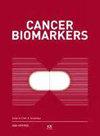MED7 的上调与肝细胞癌的进展有关
IF 2.2
4区 医学
Q3 ONCOLOGY
引用次数: 0
摘要
目的:据报道,MED亚基与多种类型的肿瘤有关,但MED7在肝细胞癌(HCC)中的潜在作用仍不清楚。本研究旨在探讨 MED7 在 HCC 中的作用。方法:在本研究中,我们首先通过几个公开数据集分析了HCC和邻近正常组织之间的MED7 mRNA表达水平。然后,我们利用组织芯片(TMA)通过免疫组化(IHC)研究了 MED7 在 HCC 中的临床作用。同时,基于基因-基因相关性分析探讨了 MED7 的潜在作用机制。结果:MED7的高mRNA水平与晚期和分化程度相关。IHC 结果显示,在 330 例 HCC 中,MED7 蛋白水平在 HCC 中上调,并与 Edmondson 分级和微血管侵犯相关。GO(基因本体)和KEGG(京都基因和基因组百科全书)分析表明,MED7共表达基因主要参与核糖核蛋白复合物的生物发生、蛋白靶向、mRNA加工和三磷酸核苷代谢过程等。进一步分析还发现,MED7 mRNA 水平与免疫细胞浸润水平有显著相关性。结论:MED7 在 HCC 中上调,并与 HCC 的进展相关。同时,MED7 可能通过参与多个基因网络来影响 HCC 微环境中的肿瘤发生和免疫反应,从而促进 HCC 的发展。本文章由计算机程序翻译,如有差异,请以英文原文为准。
Upregulation of MED7 was associated with progression in hepatocellular carcinoma
OBJECTIVE: MED subunits have been reported to be associated with various types of tumors, however, the potential role of MED7 in hepatocellular carcinoma (HCC) was still unclear. The aim of the study was to explore the role of MED7 in HCC. METHODS: In this study, MED7 mRNA expression levels betweenHCC and adjacent normal tissues were first analyzed by several public datasets. Then we utilized a tissue microarray (TMA) to investigate the clinical role of MED7 in HCC by immunohistochemistry (IHC). Meanwhile, the potential mechanisms of MED7 based on gene-gene correlation analyses were also explored. RESULTS: High mRNA level of MED7 correlated with advanced stage and worse grade of differentiation. IHC results showed that MED7 protein level was upregulated in HCC and associated with Edmondson grade and Microvascular invasion in 330 cases of HCC. GO (Gene Ontology) and KEGG (Kyoto Encyclopedia of Genes and Genomes) analysis revealed that MED7 co-expressed genes participate primarily in ribonucleoprotein complex biogenesis, protein targeting, mRNA processing and nucleoside triphosphate metabolic process et cetera. Further analysis also revealed that MED7 mRNA level has significant correlation with immune cells infiltration levels. CONCLUSION: MED7 was upregulated in HCC and correlated with progression of HCC. Meanwhile, MED7 may promote HCC through participating in multiple gene networks to influence tumorigenesis as well as immune response in HCC microenvironment.
求助全文
通过发布文献求助,成功后即可免费获取论文全文。
去求助
来源期刊

Cancer Biomarkers
ONCOLOGY-
CiteScore
5.20
自引率
3.20%
发文量
195
审稿时长
3 months
期刊介绍:
Concentrating on molecular biomarkers in cancer research, Cancer Biomarkers publishes original research findings (and reviews solicited by the editor) on the subject of the identification of markers associated with the disease processes whether or not they are an integral part of the pathological lesion.
The disease markers may include, but are not limited to, genomic, epigenomic, proteomics, cellular and morphologic, and genetic factors predisposing to the disease or indicating the occurrence of the disease. Manuscripts on these factors or biomarkers, either in altered forms, abnormal concentrations or with abnormal tissue distribution leading to disease causation will be accepted.
 求助内容:
求助内容: 应助结果提醒方式:
应助结果提醒方式:


